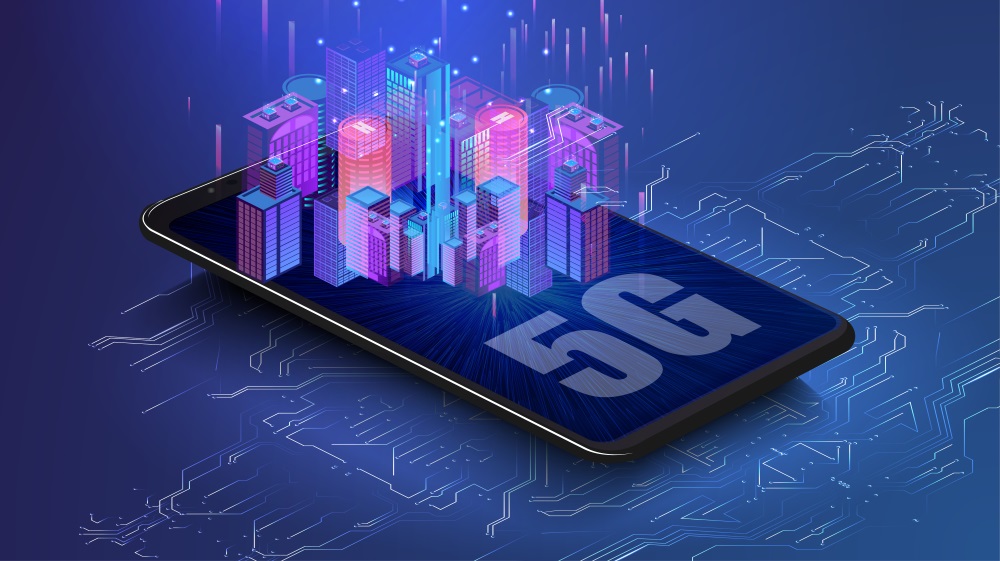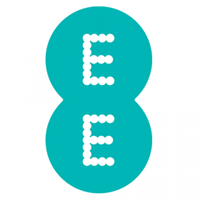
5G home broadband deals are fast becoming a viable alternative to fixed-line broadband packages. It's easy to see why, too. After all, 5G broadband is lightning quick, takes seconds to set up, and doesn't require an engineer to visit your home. Plus, 5G broadband options also provide less buffering and virtually no lag.
Although they're now widely considered to be a great option, most people don't know too much about 5G home broadband deals and how they work. 5G mobile networks were only switched on for the first time in 2019, but thankfully, these networks have since expanded rapidly with 5G coverage available for around 50% of the country. And now, networks such as EE and Three offer a number of 5G home broadband deals to cater to those who need high broadband speeds with flexibility that you can't match with a traditional fixed connection.
To help you decide whether 5G broadband is right for you, we've put together this guide. Below, we've covered all the key points, including whether 5G is available in your area, how much it costs, and the best 5G broadband deals available right now.
Who has the best 5G home broadband deals?
Three 5G Home Broadband | 24-month contract | FREE upfront | Unlimited data | 6 months half price, then £25 a month
Three's 5G home broadband option provides you with superfast average download speeds of 150Mbps. Plus, not only is this particular deal quick, but it's also one of the cheapest on the market today. This is because, until the end of January, it's half-price for the first 6 months of a 24-month deal! In addition, you also receive unlimited data, free next-working-day delivery if you order before 8 pm, and a 30-day money-back guarantee. What's not to love?
EE Smart 5G Hub | 18-month contract | unlimited data | £50 a month | £100 upfront
EE's Smart 5G Hub is a seriously impressive piece of tech. Although it's more expensive than the Three hub we mentioned above, it does rival that option for speed. This is because the EE Smart 5G hub offers average download speeds of 146Mbps. Additionally, with this device, you can connect 100+ devices and EE will even provide you with a 20GB data boost for your mobile. There's a lot to love about this package, even if it is expensive and comes with setup fees. If you'd like to save £5 per month, you can choose an option with a data limit.
National Broadband 5G | 24-month contract | £99 upfront | Unlimited data | £44.99 per month
National Broadband specialises in ultrafast 5G home broadband deals and the company claims that it could save you 'hundreds of pounds'. Its 5G WiFi router is excellent and it's capable of providing average download speeds that exceed 100Mbps. However, there is a £99 upfront fee, which you may find prohibitive. If you're unsure whether this package is right for you, the company offers a risk-free 14-day trial.
Vodafone GigaCube Unlimited | 24-month contract | £15 upfront | Unlimited data | £45/month
Vodafone's 5G GigaCube plans returned to the market in late 2023. This is great news because we think that the company's hub is class-leading. After all, it provides average download speeds that are '10x faster than 4G'. Plus, it allows users to connect up to 64 devices. We think this unlimited plan is the company's best, but Vodafone also offers capped plans and 30-day rolling contracts.
What is 5G broadband?
5G is the fifth generation of mobile phone technology. The first generation was analogue mobiles. These early devices were followed by digital devices, which were subsequently followed by 3G and 4G mobiles. While 3G helped turn phones into smartphones, 4G enabled faster browsing and richer media.
Now, 5G devices are here. These really amp up the data speeds you can expect to receive. However, as well as providing a faster service, 5G devices are also responsible for boosting capacity and reliability on the network. This means that devices we haven't perfected yet (such as augmented reality glasses and self-driving cars) can also get online when the time comes.
However, although 5G undoubtedly provides us with a number of benefits, 5G coverage in the UK is still relatively limited. Thankfully though, this has improved rapidly in the last 12-18 months, and estimates now suggest that major networks like EE and Three do provide 5G coverage to over 50% of the UK population.
How does 5G broadband work?
5G home broadband is an alternative to a traditional fixed-line internet connection.
Traditional fixed-line connections (that are in the majority of homes) rely on cables and landlines. However, 5G connections are different. They instead harness the power of mobile data. This means they work in the same way as a smartphone.
Although both solutions provide a working internet connection, how they are installed and work is different. For example, a fixed-line connection requires an engineer to install the solution in a home. By contrast, a 5G solution can be fitted by a customer. With a 5G option, all you need to do is put a SIM card into the hub and then plug it in at the wall. This means that you can be online the very next day.
However, it's important to stress that for the solution to work properly, you'll need to live in an area that can receive a stable and reliable 5G connection.
What's the difference between 4G and 5G broadband?
Both 5G and 4G home broadband rely on mobile data rather than cables. Both also use a SIM card and simply need to be plugged into the wall. However, the technology behind 4G broadband is older, meaning that the solution is much more widely available than 5G, which is only available to around half of the country.
That said, 5G home broadband is more desirable in areas where it is available. This is because it offers far quicker download and upload speeds. For context, good 4G connections provide average download speeds of around 30Mbps (meaning they rival basic fibre deals in terms of speeds). However, some 5G options are at least 5x quicker than this!
The final difference between 5G home broadband and 4G home broadband is cost. As you may expect, the newer technology that provides better speeds is also more expensive. This means 5G can cost a lot more than 4G, depending on the provider.
The solution that's best for you will likely depend on your budget as well as availability in your area and the speeds you desire.
Is 5G broadband different to Mi-Fi?
Yes, they're different. Allow us to explain...
Mi-Fi devices are truly portable solutions that you can take anywhere. This is because they're powered by batteries. 5G hubs are different because they're mains powered. However, they will work anywhere with a plug, like on a train or in a hotel room.
Mi-Fi devices are primarily used by people who are on the move (like people who regularly need to work on trains or families who would like a connection on a road trip). However, they're not suitable as a home broadband solution.
On the other hand, powerful 5G hubs are designed to work in the home or the office. It's simply a bonus that these devices also work anywhere where you have access to a plug and a 5G mobile network. But remember, they do need to be plugged in and aren't truly portable.
Will 5G replace home broadband?
In recent years, 5G home broadband solutions have become increasingly popular. This is because, for many people, these solutions are a viable alternative to traditional fixed-line solutions.
In areas with good signals, these solutions can provide incredibly quick download speeds and a high-quality streaming experience. If your home's internet traditionally struggles when multiple family members are trying to get online at the same time, then you may find that a 5G home broadband solution will suit your needs.
Now, 5G home broadband isn't for everyone. But, generally speaking, it is a great option for anyone who typically struggles to get a fast and reliable connection with a traditional fixed-line package. This usually includes people who live in rural areas or large blocks of flats. That said, if your home can access FTTP connections, these may be better for your requirements.
As a result, although 5G could replace traditional home broadband solutions at some point in the future, right now you'll need to do a little bit of research to discover whether 5G is best for you.
So, before you start looking into the best 5G home broadband deals available, you should first check what 5G signal is like in your area. Sadly, coverage across the UK is still patchy and it doesn't usually stretch outside major towns and cities.
By first searching for 5G availability in your area, you'll be able to work out whether you'll receive a reliable connection with a 5G home broadband option. Plus, by taking this step, you'll also be able to compare the speeds you can expect with a 5G connection against the speeds you're offered with traditional deals. You may be pleasantly surprised!
However, keep in mind that your research may reveal that 5G isn't available at your home or that the service you receive may be unreliable. If this is the case but you like the idea of a mobile solution, you should look at 4G home broadband deals instead. Although you won't get the same speeds you would from a 5G deal, you'll still receive many of the same benefits. If the speeds you receive from 4G home broadband are too slow for your needs, then you'll likely be best off sticking with a traditional connection.
Where is 5G home broadband available?
Whether you can get 5G broadband (and which provider you can go with) will depend on where you live. To help you find out whether 5G is likely to be available in your area, here's a summary of the providers that currently offer 5G and their level of coverage.
Three: Three now offers 5G to customers in almost 600 towns and cities across the UK. The provider says it offers 5G connections to 60% of the UK outdoors. Of course, many of these places don't yet have complete 5G coverage, but you can check what the coverage is like in your postcode here. We think Three is the market leader in 5G because it has managed to develop some of the fastest speeds available and some of the best deals around.
EE: EE provides at least partial 5G coverage to more than 1,000 towns and cities in the UK. Due to this, EE rivals Three in terms of coverage and the provider claims to offer 5G to 60% of the UK's population. You can use EE's coverage and network status checker to see whether EE's 5G offering is available in your area.
Vodafone: Vodafone doesn't provide the same level of 5G coverage as EE and Three and many of its 5G broadband deals are now tailored towards businesses. However, Vodafone does offer 5G in more than 150 UK towns and cities across the UK. You can see if you can get Vodafone 5G at your address here.
Other providers such as BT, Sky and Tesco Mobile also offer 5G coverage in the UK, but these network providers piggyback off 5G signals from Three, EE and Vodafone.

Is 5G faster than regular broadband?
A 5G broadband connection will provide you with download speeds that are faster than those offered by an ADSL connection, a fibre broadband connection and some full fibre broadband connections.
But, you should remember that although providers promote eye-catching headline speeds, the exact speed you'll receive will be determined by two major factors: your chosen provider and the strength of the network in your area. For example, while many Vodafone users are able to access speeds that can reach 1Gbps, some people only receive speeds that average 150-200Mbps.
Finding out whether a 5G connection will be quicker than your current package is simple. First, you should conduct a speed check that will reveal what speeds you're currently receiving. Then, you can check what speeds you can expect to receive from a 5G home broadband deal with your chosen provider. If 5G looks quicker, you can then sign up.
Is 5G broadband right for me?
For an increasing number of people across the UK, 5G broadband is a viable solution. However, whether this form of internet connection is right for you will ultimately be determined by a number of factors, such as your location, the speeds you need, and the price you'd like to pay for your internet.
Let's start by saying that if you can get a reliable 5G connection in your local area, then a 5G home broadband solution is likely to be a viable option for you. This is because these solutions are quick to set up and provide some of the fastest speeds available.
But, unfortunately, the reality remains that around half of households in the country cannot receive a reliable 5G home broadband connection. This means that, unless you live in a major town or city, then it's highly unlikely that a 5G home broadband connection will be the best option for you. In this circumstance, either a traditional fixed-line connection or a 4G home broadband connection will undoubtedly be better.
Next, you must consider the speeds you need and what speeds other types of connection can offer you. Remember, even though 5G offers rapid speeds, the technology behind fixed-line broadband connections is also improving rapidly. For example, the rollout of full fibre broadband networks remains ongoing, and this means an increasing number of households can now access gigabit speeds (including those in rural areas). As a result, deals that were not available to you when you last renewed your broadband contract may now be valid options.
If you have good 5G coverage in your area and you're trying to decide whether a 5G connection or a fixed-line connection is right for you, then you should run a speed test. This way you can check whether a 5G connection or a fixed-line connection will provide you with faster internet. Then, you can also directly compare the prices of the options available as well.
Generally speaking, long-term fibre deals tend to be cheaper than 5G deals. However, again this is dependent on exactly what deals are available in your area and which providers supply your area. This may also be influenced by the time of year you search. For example, a number of internet service providers offer new 5G and fixed-line deals around Black Friday.
Best home broadband deals currently available
At the moment, we think that the 5G home broadband deal we highlighted from Three is the best available. There are a number of reasons for this. Firstly, it's by far the cheapest of the reliable options we found. Secondly, it also provides very quick download speeds and it comes without download limits. On top of this, it also comes with extra perks such as next working day delivery if you order before 8 p.m. and a money-back guarantee.
But, although this is generally true, you need to remember that the best deal for you will primarily be determined by your location. For example, at your address, you may find that Vodafone and EE can actually offer much quicker and more reliable connections. Due to this, you should always shop around before you make a commitment.
Done some research and don't think 5G home broadband is right for you? That's completely understandable. If this is the case, we recommend that you take a look at our dedicated guide to the best broadband deals. This way, you can find the best options available in your area. If you'd like an ultrafast fibre deal, then instead head over to our fibre broadband deals page. This will show you the quickest and best speeds you can receive at your property.
5G Broadband Deals Comparison
Get daily insight, inspiration and deals in your inbox
Sign up for breaking news, reviews, opinion, top tech deals, and more.

Rob is TechRadar's VPN Editor. Coming from a background in phones and technology, he's no stranger to the risks that come with putting yourself online. Over years of engaging with different platforms, testing the limits of his online persona, and feeling the brunt of several data breaches, Rob has come to gain a keen understanding of cybersecurity and the benefits of services such as VPNs in providing a secure online experience. He uses this to not only advise on the best ways to stay secure online but also share his own experiences and especially how to avoid trouble. Outside of work, you'll find Rob on the tennis courts, in the gym, or diving into the biggest and best games of the year.



